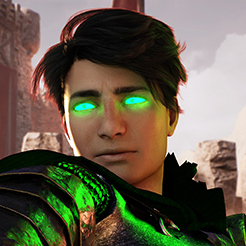The Night the Lights Went Out by Drew Magary tells the author's story of experiencing a traumatic brain injury and the gradual process of recovery. After hosting the 2018 Deadspin Awards, he collapsed, breaking his skull and his brain. In this book, he brings readers along as his life is turned upside down.
Since the author was not conscious for several weeks following his injury, that part of the story is pulled together from colleagues, family members, and doctors. It was laid out with a few sentences at a time from one person, then another person, then another person, etc. It captures the franticness and confusion of the time, as people tried to piece together what had happened. I think that this is probably a very captivating way of telling a story that would be compelling for a lot of readers; however, my concentration is crap because of the effects of depression, so I found it hard to follow.
When the story reached the point that Magary was conscious and alert again, it shifted to first-person storytelling, which I found much easier to read. The author's writing style is informal and candid, with plenty of humour and profanity thrown in. I learned some new lingo, too, including crack of ass (I'd heard butt crack of dawn, but I like crack of ass more), and butt-rock, which is apparently the genre that Hemorrhage by Fuel falls into. I also liked descriptions along the lines of "the requisite assless hospital gown: the one scientifically designed to rob you of your dignity."
The brain injury, as well as the effects of later cochlear implant surgery, had significant sensory effects, impairing his hearing, smell, and taste. I thought the author did a great job of conveying how these deficits influenced the way he related to the world, including what it felt like to lose sensory memories and be unable to replace them.
As a result of the injury, the author joins the young old people club that many of us with chronic illness are already members of. He needed to use a walker, get a pillbox, and transition to being "a Hearing Aid Guy," and wrote that, "In the span of less than two months, I had aged thirty years." It's interesting to hear the perspective of someone who experiences those changes suddenly compared to the slower adjustment in chronic illness.
The author is open about how hard it became to interact with the world with a brain that wasn't working properly. He talked about being a "cranky old turd" and "an overly sensitive prick," and realizing he needed to figure out a way to "get the fuck over myself." He observed, "The more I recovered from my hemorrhage, the more pronounced my losses became to me." It was one of the many points in the book that highlighted how much commonality there is in different kinds of wonky brain experiences.
The book also addresses the push/pull of wanting to be normal yet wanting people to accommodate his limitations. He grappled with acceptance, and realized stubbornness was serving as "a flimsy cover for outright denial." When he found out that a coworker was also deaf in one ear, he discovered something a lot of us in the mental health blogging community have already learned: "It never hurts to know someone who's been through your very specific brand of shit."
Vulnerability was another theme that came up, including the need to get over his own mental block that made him reluctant to see a therapist. This book is certainly proof that he's prepared to be vulnerable, even if it isn't easy.
Culturally, I live in a very different world from the author, who is currently a columnist at Defector, which I hadn't heard of before I read this book (nor had I heard of Deadspin). I think many of my cohabitants in the mental illness/chronic illness world will likely be able to relate to a lot of the issues that come up in this book. Where I think this book will really have value, though, is in bringing these kinds of issues and this vulnerability to audiences within the author's cultural world.
The Night the Lights Went Out is available on Amazon.
I received a reviewer copy from the publisher through Netgalley.
You can find my other reviews on the MH@H book review index or on Goodreads.
This post contains affiliate links, which let you support MH@H at no extra cost to you.


No comments:
Post a Comment